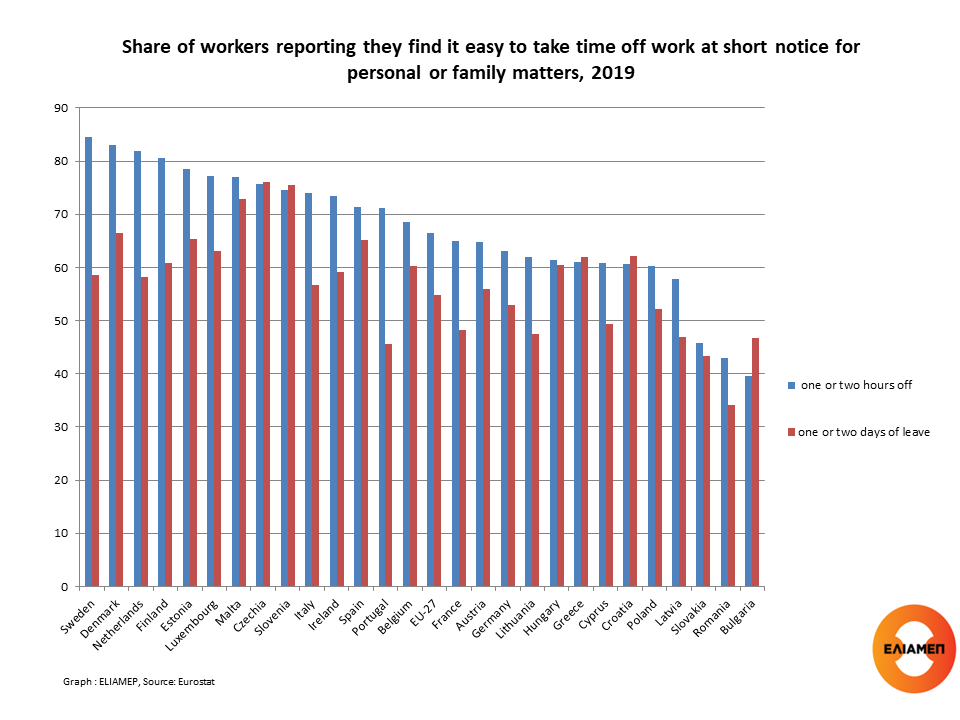The balance between work and personal/family life is one of the permanent commitments of the EU, as expressed for example in the European Strategy for Gender Equality. Achieving work/ life balance requires the renegotiation of traditional labor relations in order to facilitate employees to shape their working time arrangements taking into account both the demands of their work and their personal and family life.
Adding a relevant module to the Labor Force Survey is one of the tools to monitor the progress that has been made in this area and it helps highlighting the actions that need to be done. The Survey carried out in 2019 provides data on the possibility for employed persons to take, at short notice, a few hours off or one or two days of leave.
In the EU as a whole two-thirds (66.4%) of workers reported that they can very easy or fairly easy take one or two hours off at short notice be (i.e. within one working day) for personal or family matters in the main job. In contrast, 20.5% reported that it was “fairly difficult” and only 13.1% that it was “very difficult”. Findings varied significantly between Member States. In Sweden, Denmark, the Netherlands and Finland more than 80% of workers could “very easy” for “fairly easy” take hours off at short notice for personal or family matters. On the other hand, in Slovakia, Romania and Bulgaria, only 40%-45% of workers had this possibility. In Greece the share of people for whom it was very easy or fairly easy to take a few hours was 61%.
When asked about the possibility to take one or two days of leave at short notice, i.e. within three working days, about half of employed persons (54.8%) in the EU-27 answered that they can easily take one day or two days of leave. On the other hand, for 29.1% found it “fairly difficult” and for 16.2% “very difficult”. In the Czech Republic, Slovenia and Malta the share of people for whom it was “very easy” or “fairly easy” was above 70%. In Romania the percentage was only 34%. In Greece, it reached 62% (above Sweden and Germany).
The possibility for employed persons to take, at short notice, a few hours off or one or two days of leave varied significantly depending also on the socio-economic characteristics of the respondents. The possibility of taking such leave “very easy” was higher for men (37%) than for women (30%), for those over 50 years old (39%) compared to those under 35 years old (28%) , for workers with a high level of education (40%) than for those with a low level of education (30%).
Recent research based on data from the United Kingdom confirms these findings, revealing that employed people in well-paid jobs are be able to take time off to deal with an emergency at home and would receive full pay during their absence. But that isn’t possible in many low-paid jobs that they would struggle to miss work for a day due to a family emergency and they wouldn’t be paid.
In order for the reconciliation of professional and personal/family life to benefit everyone in the society, instead of a being a privilege of only certain socio-economic groups, public policy interventions and actions on the part of businesses are required. This reconciliation promotes not only the quality of work and labor relations, but also the productivity of the workers.




